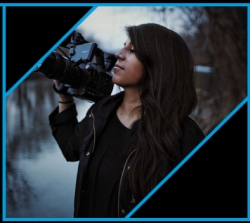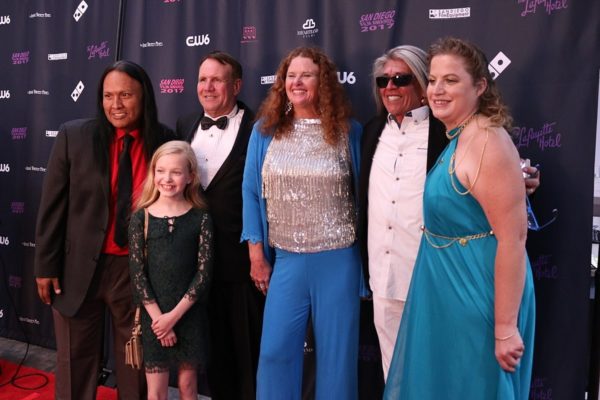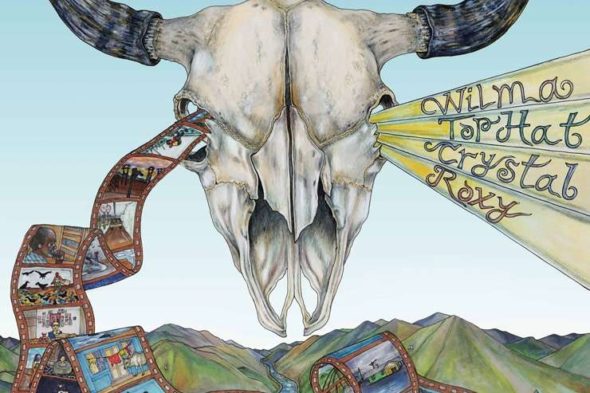How many ways can you tell a story? Each year, festivals and contests around the country ask that question of emerging and established filmmakers. Increasingly, these organizations seek traditionally produced content as well as films experimenting with virtual reality, 360-degree views, and smartphones. The world of film is evolving quickly, in exciting ways.
We recently spoke with 3 film organizations that use Submittable about networks, how new technology is shaping the industry, and why having a supportive creative community matters. Here are their stories.
AT&T Film Awards

AT&T is the world’s largest telecommunications company, but the 141-year-old organization isn’t just cellphones and wireless subscriptions. It’s also a growing entertainment platform for innovative content and emerging filmmakers. “We want to celebrate the important work happening in the creator community,” explains Dave Okamoto, senior marketing manager at AT&T, “and offer exposure and recognition for this work.”
AT&T began using the Submittable platform this year for its AT&T Entertainment Project, a competition seeking imaginative, undiscovered short films from aspiring professional and student filmmakers. Utilizing Submittable’s audience of artists and filmmakers, AT&T reached their goal of 1,000 submissions—in just three weeks. They received responses from 41 states and had to close the submission window early due to this overwhelming response. Finalists were showcased at AT&T Shape, a technology and entertainment expo attended by over 10,000 visitors at Warner Bros. Studios in Los Angeles.
This October, AT&T is opening submissions for the AT&T Film Awards, which aims to recognize undiscovered short films by college students, middle school and high school students, Spanish language filmmakers, and videographers using mobile devices. What does a winning entry look like? “First and foremost telling a good story is paramount,” says Okamoto. “Keep it original and engaging.”
The AT&T Film Awards begins accepting submissions on October 10, 2017. Winners will be announced in December 2017.
San Diego Film Consortium

In 2012, Jodi Cilley was teaching film in San Diego, CA, when she noticed some major transitions in her field. Equipment was changing, shrinking even, lowering the barriers for entry to filmmaking. “It still takes hundreds of people and lots of specialized skill sets to make a film,” she points out, “but a lot of that was becoming more and more accessible.”
Cilley knew the San Diego community included filmmakers who commuted back and forth to Los Angeles, just two hours away. What if that network had enough resources to make films locally, within their own community? She tested the waters by holding a gathering in a local hotel. “We showed a bunch of films that we collected using Google Forms,” Cilley recalls. “After a year we thought we had enough submitted work that we could do an awards show … so we produced the San Diego Film Awards.” The fledgling organization switched from Google Forms to Submittable because it provided a single place for people to submit to multiple categories. “It’s really helped with efficiency,” says Cilley.
Today, the organization hosts a film week, film awards program, screenwriting competition, and most recently, a call for San Diego-based music videos. “For me, it’s important that the students I teach have experience in the industry, and I feel like it’s important for them to be able to get that here in San Diego and not have to move to L.A.,” says Cilley.
The Film Consortium San Diego is accepting music video submissions through December 31, 2017, for San Diego-based music videos, films, web series episodes, or albums that use at least 80% local talent, crew, locations, and resources.
Big Sky Documentary Film Festival
 Montana is known for big skies and beautiful landscapes, but what about film? In 2017, the Big Sky Documentary Film Festival drew approximately 20,000 attendees to Missoula, MT (note: also the home of Submittable), for a festival with entries both from around the world and also just down the road. “We want to generate more appreciation and support for the arts and films in Montana,” explains executive director Rachel Gregg. “The goal is to arm people with the tools they need to tell the story they want.” One way the festival achieves this is by offering DocShop, a five-day forum that engages filmmakers, innovators, students, and media industry leaders in discussions about issues and ideas shaping their field. The workshop culminates with the Big Sky Pitch, an opportunity for a handful of filmmakers to pitch works-in-progress to a panel of industry representatives and funders. Last year, the festival used Submittable to collect 50 pitch proposals. They narrowed this down to seven applicants, which was difficult. “We’re getting more and better quality proposals every year,” says Gregg.
Montana is known for big skies and beautiful landscapes, but what about film? In 2017, the Big Sky Documentary Film Festival drew approximately 20,000 attendees to Missoula, MT (note: also the home of Submittable), for a festival with entries both from around the world and also just down the road. “We want to generate more appreciation and support for the arts and films in Montana,” explains executive director Rachel Gregg. “The goal is to arm people with the tools they need to tell the story they want.” One way the festival achieves this is by offering DocShop, a five-day forum that engages filmmakers, innovators, students, and media industry leaders in discussions about issues and ideas shaping their field. The workshop culminates with the Big Sky Pitch, an opportunity for a handful of filmmakers to pitch works-in-progress to a panel of industry representatives and funders. Last year, the festival used Submittable to collect 50 pitch proposals. They narrowed this down to seven applicants, which was difficult. “We’re getting more and better quality proposals every year,” says Gregg.
In addition to film, the festival is trying something new in 2018 by opening submissions to audio documentaries as well. “We will always be a film festival, but radio and podcasts are enjoying a renaissance,” says Gregg, “and that’s not a thing we want to ignore. That’s part of the reason we’re using Submittable. Because it’s so flexible to try a new medium.”
The Big Sky Documentary Film Festival is acceptingaudio submissions through November 5, 2017. Selections will air at the 15th annual Big Sky Documentary Film Festival at live listening events.
